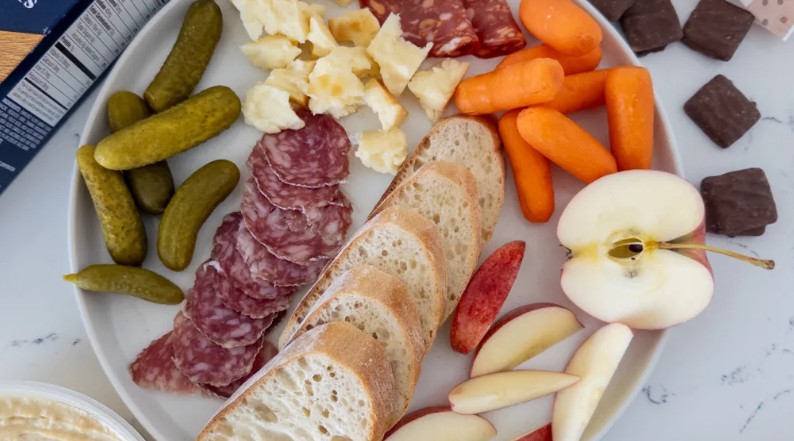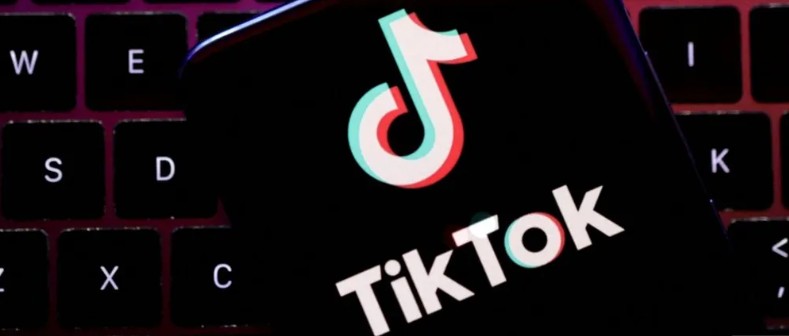"Girl dinner" is just one of the many gender-based TikTok trends that went viral this year.
Along with yearbook filters, the Roman Empire and Wes Anderson-style mini-movies, girl dinner was one of 2023's most used and debated hashtags on the app.
The videos in question show mostly young women filming their dinner, which is made up picky bits of food rather than a balanced meal.
"It's simple, its fun, it leaves you feeling giddy and full," Olivia Maher, who came up with the phrase, tells the BBC's Reliable Sauce podcast.
But why is the platform's large Gen Z audience, known for going against heteronormative standards, celebrating a number of gender-based online trends?
Maher's original video, posted on TikTok in May, showed her dinner of just four grapes, a few crackers and cheese.
The hashtag #girldinner has since been used over over 2 billion times on TikTok.
One user even created a TikTok sound which has become the unofficial girl dinner song - and according to TikTok has been used by more than 430,000 people to soundtrack their own videos.

Asked about the role gender plays in the trend, Maher says: "I'm a girl, I'm obviously a woman, but there is something fun and light-hearted about being able to call myself a girl.
"I'm not a woman right now, I'm not making a dinner right now. I'm just having my bits and pieces and I'm just a girl having an evening."
Most people who have posted "girl dinner" videos on TikTok use the term as a way of indicating their cavalier attitude to traditional meals and structures.
But, Maher notes: "You absolutely do not have to be a girl, woman, anybody can enjoy girl dinner."
The word "girl" being used online as a gender-neutral way of pleasing a inner child is perhaps a reason so many have related to it.
"It's, 'I'm not cooking, I'm not functioning as a perfect role model of society, I just want my crackers and cheese because I'm not that hungry tonight - I don't need the full protein and veg'," Maher explains.
"And celebrating that, saying 'that's OK', it's not shameful, I'm just having an evening date with myself and finding the OK-ness in that and knowing that other people do that because before it wasn't really talked about is I think why it gained so much popularity."
The trend has come under fire, however, with some claiming that it encourages unhealthy or damaging eating habits.
Cosmopolitan by writer Morgan Fargo said: "While those 'meals' might not represent the wider diet of each individual, it begs a larger question: why are we celebrating women under-eating, further entrenching diet culture and instilling deeply unhealthy body ideals?"
She added: "The thing these videos don't explain is that under-eating, crash dieting or choosing to overly restrict yourself can have lifelong consequences."

But Maher takes a more positive approach towards the term girl dinner. "It leaves me so happy, I'm having an evening with myself," she says. "Kind of like a little rat meal."
This is not the only viral trend mentioning "girls" and "rats" - this summer we learnt about "rat girl summer", another gendered trend with over 30 million hashtags on the Chinese-owned video app.
Rapper Megan Thee Stallion coined "hot girl summer" back in 2019, but this newer trend encourages, women to go outside, eat and kill the cringe.
Many would argue that Sabrina Basson, also known as Tube Girl, filming herself having a little dance underground was an example of killing the cringe.
Surprisingly, one trend seemed to highlight consumer spending notably "girl math", a kind of logic to justify impulse spending.
Creator Syd Wingold used examples of girl math in her posts, joking if she paid for something in cash, it's free. And that if you return something you previous bought at a shop, then according to girl math she's making money.
Some people online have joked that this trend promotes the idea that woman are bad with money - which is an age-old gender stereotype.
Others have used it to unite and empathise about the way they think about money and being conscious about their not-so-smart spending habits.
But the biggest surprise trend of the year had to be women asking men in their lives how often they think of the Roman Empire - it turns out a lot of men think about it loads, and a lot of women can't relate.
Many would say this affirms the stereotype of men being drawn to the battlefields of history; it's similar to a dad or uncle obsessed with WWII, Napoleon, Alexander the Great or Julius Caesar.
The term Roman Empire represents ancient civilisation, but the phrase is now commonly being used on social media by someone who thinks about a particular subject often.
Engaging in these trends isn't exclusive to women and girls… they just came up with them. But it raises the question of why gender is being brought up if it's not important anyway?



